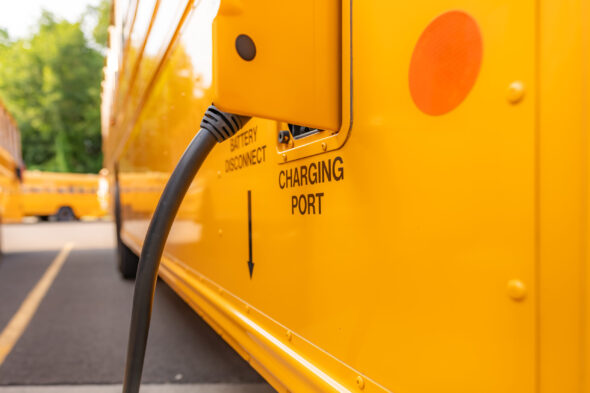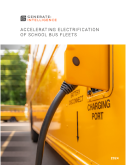DOWNLOAD
Submit the form below to continue your download
SUCCESS
Your download will begin shortly, if it does not start automatically, click the button below to download now.
DownloadAccelerating Electrification of School Bus Fleets
Across the US, school districts are choosing to electrify their school bus fleets. The change is driven by the benefits electric buses provide to students’ health and local air quality, the potential for cost savings, substantial available federal grant funding, and mounting pressure school districts face to decarbonize their operations.


Generate Capital
BIO
School districts eager to transition their fleets to electric school buses must navigate a thicket of financial and operational concerns that fall well outside the usual purview of school administrators and other traditional fleet maintenance operators. Sizable upfront costs, technical and bureaucratic hurdles, and a bevy of market uncertainties all complicate the path forward to a greener, cheaper, and healthier EV bus fleet. Overcoming the triple barriers of cost, complexity, and uncertainty requires business model innovation and adoption. Fortunately, the innovation already exists, and it’s becoming widely accessible to school districts. As the stakes for large scale electrification loom ever higher, the fleet electrification-as-a-service (FaaS) model is simplifying and accelerating the electrification process for essential audiences – public schools and the children and families they serve.
Our whitepaper distills our proprietary research and analysis to explore how the fleet electrification-as-a-service model is simplifying and accelerating bus fleet electrification for essential audiences: public schools and the children and families they serve.
To download your copy of “Accelerating Electrification of School Bus Fleets” whitepaper, click on the below.
